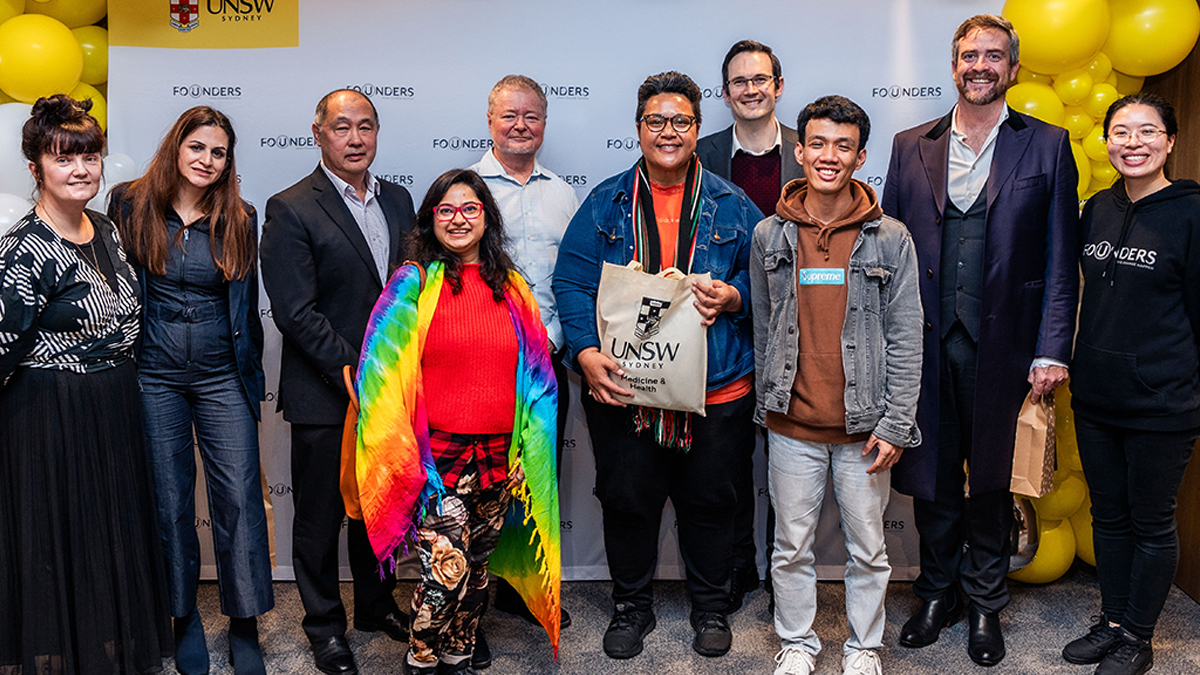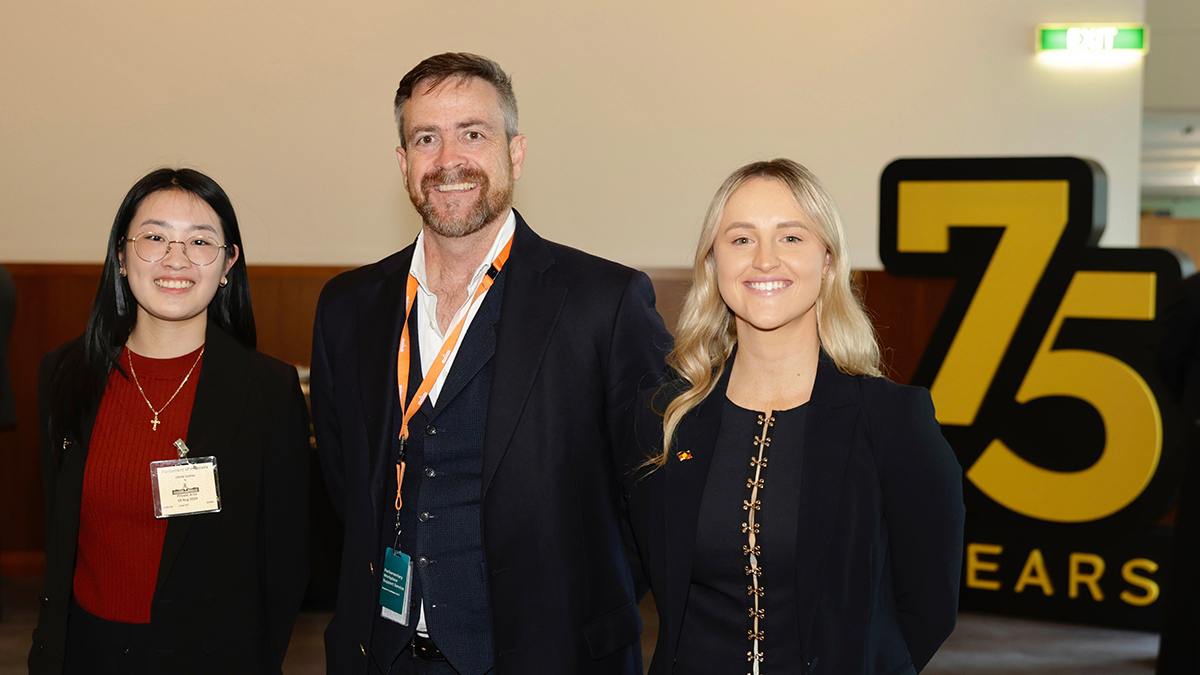
Dear colleagues
On Monday, we took UNSW on the road to Canberra for the 75th anniversary Powered by UNSW event, following last year’s successful showcase at Parliament House. The event reinforced the value of our universities in supporting Australia and Australians for a positive future.
It was an invaluable opportunity to demonstrate how UNSW can support our nation’s leaders and policymakers in priority areas, and to emphasise UNSW’s founding and enduring societal impact objective. Several of our experts were on hand to share insights and illustrate how their innovations translate into real-world solutions to some of Australia’s most pressing challenges, in fields including renewable energy, cities of the future, waste recycling, education system, artificial intelligence, future health systems, tax reform, ageing and dementia, quantum computing and entrepreneurship.
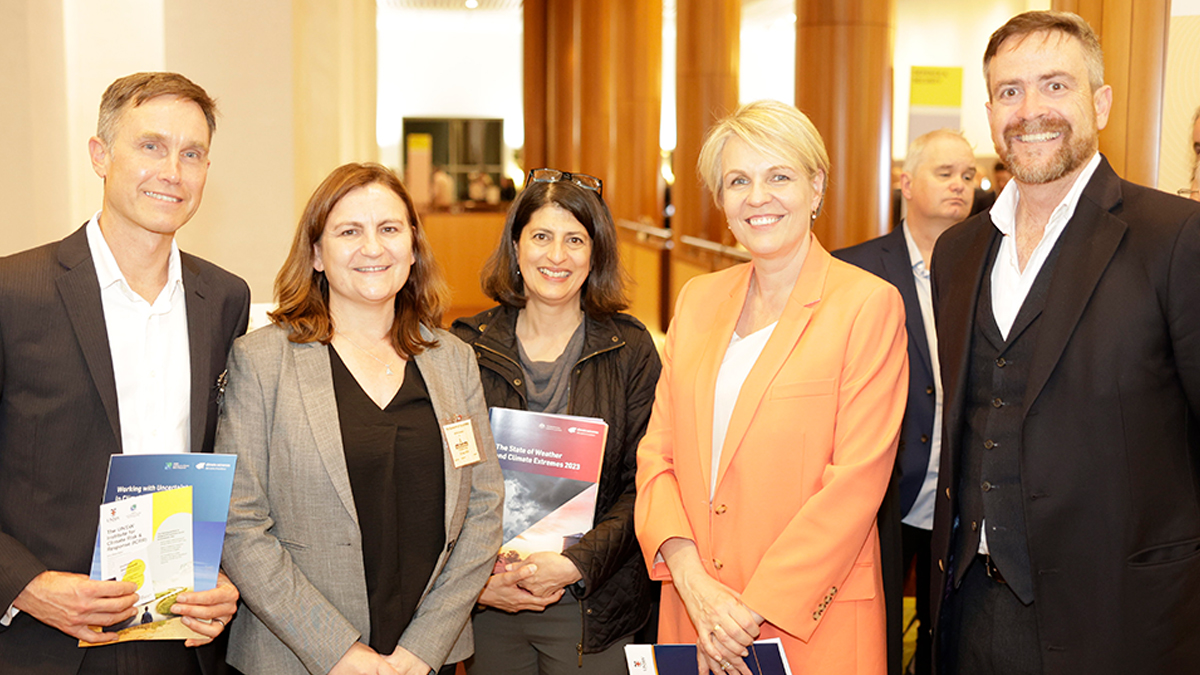
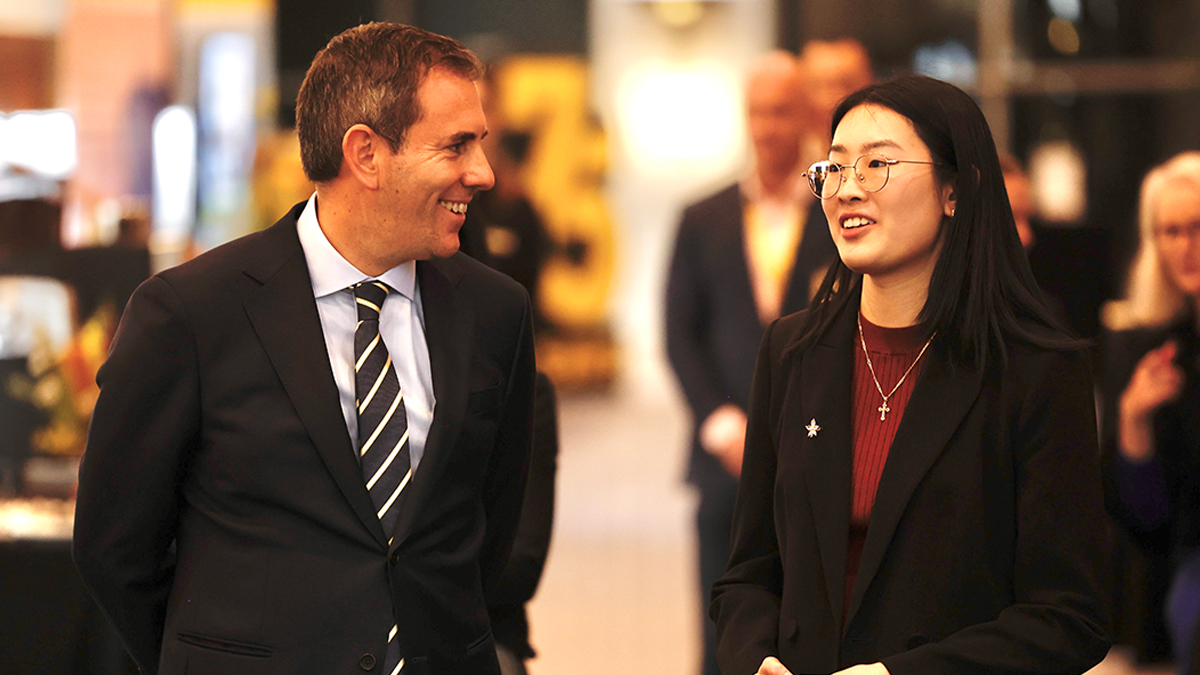
We also heard two students’ perspectives, from Emily Thomson, a sixth-year Medicine student, and Angela Le, a third-year Accounting & Business Management student (see the picture of me with Angela and Emily at the top of this page). Parliamentary speakers included Dr Jim Chalmers, Treasurer, Jason Clare, Minister for Education, Matt Thistlethwaite, Assistant Minister for Immigration, and Paul Fletcher, Shadow Minister for Science and the Arts, Shadow Minister for Government Services and the Digital Economy.
Thank you to our colleagues for sharing their time and to the Government Relations team for organising the event. Read more in this edition of Inside UNSW.
Staff Town Hall wrap-up
Thank you to the thousands of staff who joined the all-staff Town Hall last Monday. I was joined by Provost Professor Vlado Perkovic, Vice-President Societal Impact, Equity & Engagement Professor Verity Firth and Deputy Vice-Chancellor Education & Student Experience Professor Sarah Maddison to give updates on the UNSW Strategy and Societal Impact Framework, the 2024 Operational Plan, Project Phoenix, the academic calendar, student belonging and some of the many incredible achievements of the past year.
It was wonderful to see more than 3000 staff online and to answer your questions during the Q&A session. There were more questions than we had time to answer during the forum, but we will get back to staff with answers in the next few weeks, as we have done after previous Town Halls. Read more in Inside UNSW.
Making the UNSW Strategy distinctively UNSW
In her presentation at the Town Hall, Verity shared the Societal Impact Focus Areas and Strategic Themes that are our aspirations for the UNSW Strategy: Progress for All.
Verity talked about how distinctive it is that all four of the Societal Impact Focus Areas encapsulated in the Societal Impact Framework are priorities in the strategy. Our impact areas are externally focused, with measures that track our progress towards these broader societal outcomes. Given our overarching ethos of progress for all, it is entirely appropriate that our impact focus areas are a feature of the strategy.
The Societal Impact Focus Areas are:
- accelerate the transition to a sustainable society
- advance economic and social prosperity
- enable healthy lives
- foster societal resilience, security and cohesion.
These four impact focus areas will sit as priorities alongside others on education, research, engagement and our people and operations.
Their inclusion provides a level of distinction from the strategies of other universities, in that we are clearly articulating that public good priorities we can contribute to and that the success of the UNSW Strategy will be judged by our success in having societal impact outside UNSW, as well as our effectiveness in delivering on our Strategic Themes.
Such distinctiveness is one of the four strategic principles I’ve been speaking about in my past few newsletters. It joins Ambition for all, Societal impact amplified and Setting our next foundations as the set of principles that will keep us focused on why we are doing what we are doing, for the life of the strategy.
Distinctiveness asks us to establish an unmistakable character that defines and distinguishes UNSW’s people, our work and our impact. Including our Societal Impact Focus Areas in our strategy for the next 10 years and beyond is distinctively UNSW.
If you would like to be part of creating UNSW Strategy: Progress for All, there’s still time to get involved. I warmly invite you to join in.
Getting a start in Liverpool – visiting a school and judging a pitch
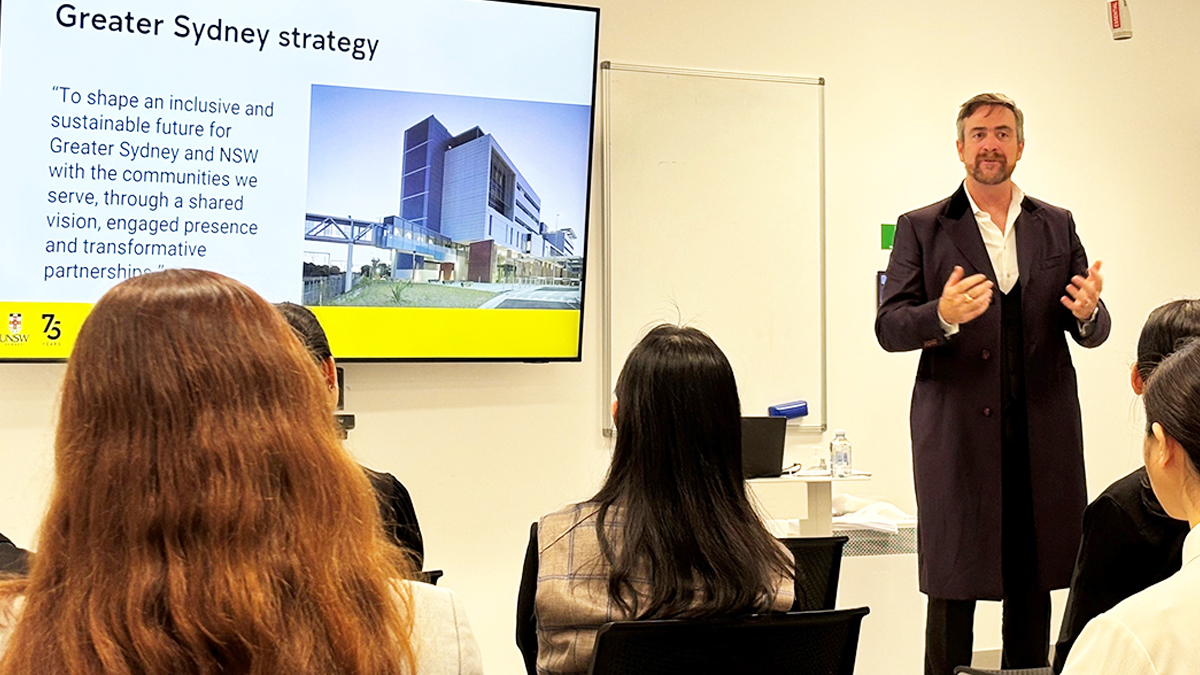
Last year I enjoyed visiting UNSW’s schools and hearing about your achievements and what is important to you. These visits were invaluable in helping me to understand the priorities and challenges of each school. I’m looking forward to visiting schools across the University again over the coming weeks to discuss the UNSW Strategy and other major programs, and to update you on what has been happening since we last met.
The visits kicked off last Wednesday with a presentation to colleagues from the Faculty of Medicine & Health in Liverpool, where I highlighted UNSW’s commitment to Greater Sydney. UNSW has a 35-year presence in South-West Sydney via its clinical campuses located at Bankstown and Campbelltown, and hospitals at Fairfield and Braeside and the Liverpool Innovation Precinct, UNSW’s flagship health precinct site in Greater Sydney.
I had a fantastic day in Liverpool, finishing with the ‘Pitch Night South West’ (pictured above), part of a new Health Tech Entrepreneurship Program by UNSW Founders. The program supports South Western Sydney-based researchers, entrepreneurs and innovators to start and scale their ventures. I was on the judging panel and it was a tough job because all the pitches were awesome!
Institute for Industrial Decarbonisation launch
On Thursday, I had the pleasure of speaking at the launch of the Institute for Industrial Decarbonisation. The Institute is a pan-UNSW initiative doing excellent work in tackling pollution at its source. It focuses on assembling the technological, economic and policy innovations needed to enable green industry development. This launch was a perfect exemplar of the depth, breadth and true excellence of UNSW research, combined with our collaborative approach to partnering.
The Institute draws on UNSW’s deep credentials in sustainability, renewables and clean energy, and leverages transdisciplinary expertise and advanced laboratories across all faculties of the University. By uniting this expertise, the institute significantly increases UNSW’s ability to support industry and government, particularly in hard-to-decarbonise sectors like resources, infrastructure and built environment. It provides a one-stop-shop to help companies and agencies develop effective portfolio solutions. Read more about the Institute for Industrial Decarbonisation on the UNSW Newsroom.
Academic Ranking of World Universities 2024
The Academic Ranking of World Universities 2024 (ARWU) were released last week. More than 2500 institutions were assessed, with UNSW ranking 77th in the world and fourth in Australia. While this is a small drop in our ranking from 72 and three in 2023, we did see improvements across research performance indicators.
Thank you to all colleagues whose dedication to research and academic excellence sees UNSW consistently ranked among the best universities in the world.
There’s even more Inside UNSW…
- Expressions of Interest are now open for Trailblazer for Recycling and Clean Energy (TRaCE) funding to accelerate the commercialisation of recycling and green energy technologies.
- Congratulations to Professor Megan Davis, Pro Vice-Chancellor Society who has been appointed to the Council of the National Museum of Australia.
- In this edition’s staff profile we meet Miles Portek who leads the Arc Food Hub, a wonderful free pantry for UNSW students and a fantastic waste reduction initiative.
Best regards
Attila
Professor Attila Brungs
Vice-Chancellor and President
- Log in to post comments

